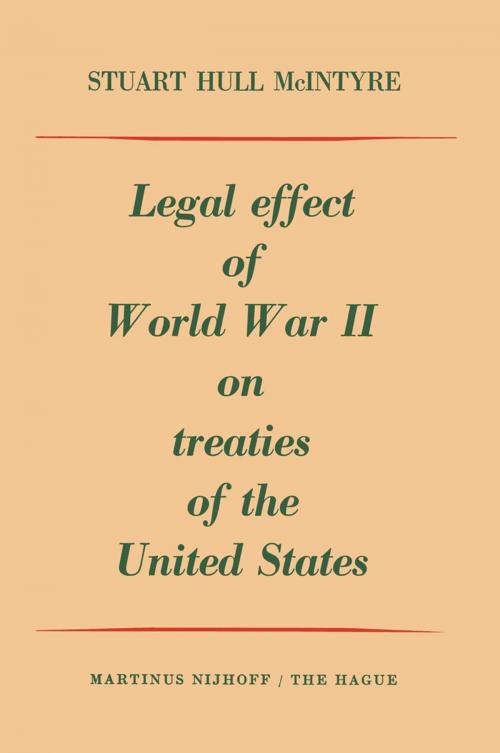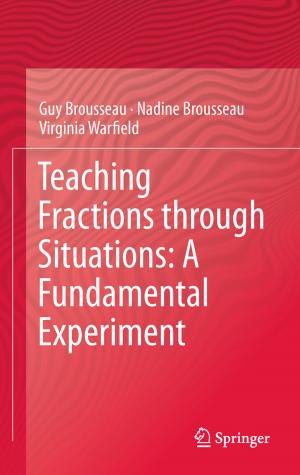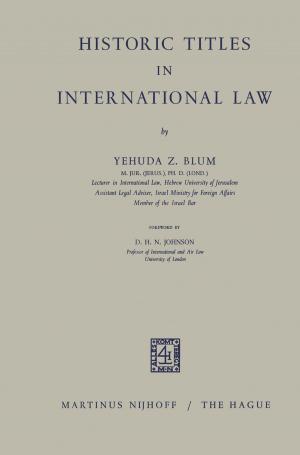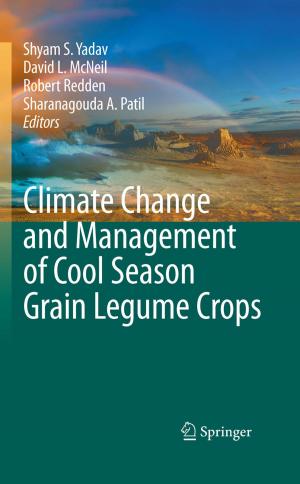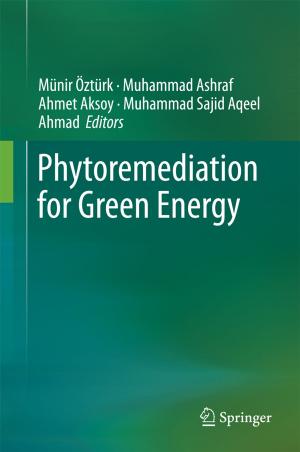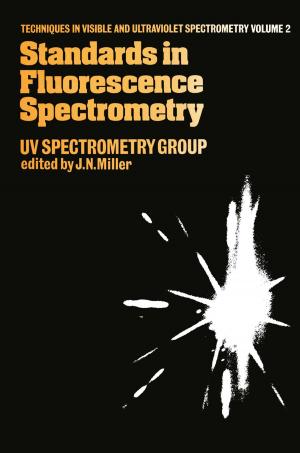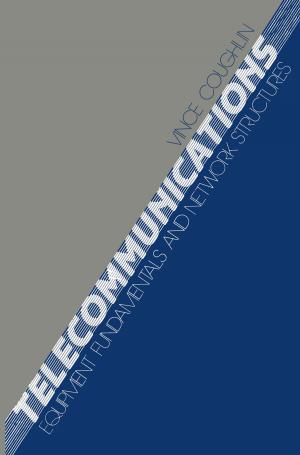Legal Effect of World War II on Treaties of the United States
Nonfiction, Social & Cultural Studies, Political Science, Politics, Economic Policy, History| Author: | Stuart Hull MacIntyre | ISBN: | 9789401192651 |
| Publisher: | Springer Netherlands | Publication: | December 6, 2012 |
| Imprint: | Springer | Language: | English |
| Author: | Stuart Hull MacIntyre |
| ISBN: | 9789401192651 |
| Publisher: | Springer Netherlands |
| Publication: | December 6, 2012 |
| Imprint: | Springer |
| Language: | English |
This study consists of an empirical examination of the legal effect of war on treaties to which the United States and one or more enemy states were parties at the outbreak of World War II. Doctrine is regarded as of secondary importance to this study and is therefore treated summarily. Some attention is devoted to historical aspects of the problem to lend perspective to the developments of World War II. The basic plan of this work is simple. After definitions have been established for "war" and "treaties," certain assumptions implicit in this study are discussed. Next, relevant doctrinal questions are considered. This is followed by an analysis of American practice concerning the legal effect of war on treaties of the United States from the early part of the 19th century down to World War II. The main part of the study, in which the treaties are arranged according to subject matter, carries the discussion down to the provisions in the peace treaties which relate to revival of prewar agreements. The chapter on the peace treaty provisions concludes with consideration of the special situation arising from the absence of a final peace treaty with Germany. Conclusions are then drawn from the experience of the United States. The literature of international law is filled with opinions on the effect of war on treaties, but only rarely have the authors stopped to analyze the practice of states methodically.
This study consists of an empirical examination of the legal effect of war on treaties to which the United States and one or more enemy states were parties at the outbreak of World War II. Doctrine is regarded as of secondary importance to this study and is therefore treated summarily. Some attention is devoted to historical aspects of the problem to lend perspective to the developments of World War II. The basic plan of this work is simple. After definitions have been established for "war" and "treaties," certain assumptions implicit in this study are discussed. Next, relevant doctrinal questions are considered. This is followed by an analysis of American practice concerning the legal effect of war on treaties of the United States from the early part of the 19th century down to World War II. The main part of the study, in which the treaties are arranged according to subject matter, carries the discussion down to the provisions in the peace treaties which relate to revival of prewar agreements. The chapter on the peace treaty provisions concludes with consideration of the special situation arising from the absence of a final peace treaty with Germany. Conclusions are then drawn from the experience of the United States. The literature of international law is filled with opinions on the effect of war on treaties, but only rarely have the authors stopped to analyze the practice of states methodically.
